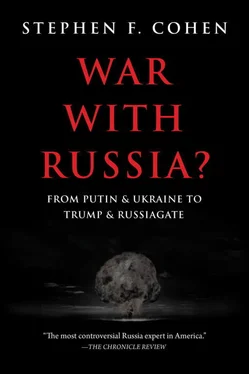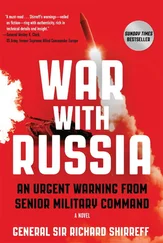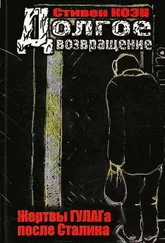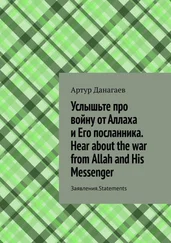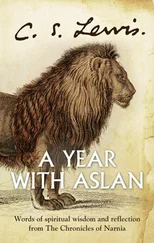The pretext of the Times story is that Putin is preparing an attack on the November 2018 elections, but the once “vital,” now silent, moles are not providing the “crucial details.” Even if the story is entirely bogus, consider the damage it is doing. Russiagate allegations have already delegitimized a presidential election and a presidency in the minds of many Americans. The Times ’ expanded version may do the same to congressional elections and the next Congress. If so, there is an “attack on American democracy”—not by Putin or Trump, as we saw previously, but by whoever godfathered and repeatedly inflated Russiagate.
As I have argued earlier, such evidence that exists seems to point to John Brennan and James Clapper, President Obama’s head of the CIA and of National Intelligence respectively, even though attention has been focused on the FBI. If nothing else, the Times ’s new “mole” story reminds us of how central “intelligence” actors have been in this saga.
Arguably, Russiagate has brought us to the worst American political crisis since the Civil War and the most dangerous relations with Russia in history. Until Brennan, Clapper, their closest collaborators, and others deeply involved are required to testify under oath about the real origins of Russiagate, these crises will continue to grow.
“The Owl of Minerva spreads its wings only with the falling of dusk.”
—Hegel
WAR WITH RUSSIA? , LIKE A BIOGRAPHY of a living person, is a book without an end. The title is a warning—akin to what the late Gore Vidal termed “a journalistic alert-system” 112—not a prediction. Hence the question mark. I cannot foresee the future. The book’s overarching theme is informed by past and current facts, not by any political agenda, ideological commitment, or magical prescience.
To restate that theme: The new US-Russian Cold War is more dangerous than was its 40-year predecessor, which the world survived. The chances are even greater, as I hope readers already understand, that this one could result, inadvertently or intentionally, in actual war between the two nuclear superpowers. Herein lies another ominous indication. During the preceding Cold War, the possibility of nuclear catastrophe was in the forefront of American mainstream political and media discussion, and of policy-making. During the new one, it rarely seems to be even a concern.
As I finish War With Russia? , the facts and mounting crises they document grow worse, especially in the US political-media establishment where, as readers also understand, I think the new Cold War originated and has been repeatedly escalated. Consider finally a few examples from the latter months of 2018, some of them not unlike political and media developments during the run-up to the US war in Iraq or, historians have told us, when the great powers “sleepwalked” into World War I:
• Russiagate’s core allegations, none of them yet proven, had become a central part of the new Cold War. If nothing else, they severely constrained President Trump’s capacity to conduct crisis-negotiations with Moscow while they further vilified Russian President Putin for having, it was widely asserted, personally ordered “an attack on America” during the 2016 presidential campaign. Hollywood liberals, it will be recalled, quickly omitted the question mark, declaring, “We are at war.” In October 2018, the would-be titular head of the Democratic Party, Hillary Clinton, added her voice to this reckless allegation, flatly stating that the United States was “attacked by a foreign power” and equating it with “the September 11, 2001, terrorist attacks.” 113
Clinton may have been prompted by another outburst of New York Times and Washington Post malpractice. On September 20 and 23 respectively, those exceptionally influential papers devoted thousands of words, illustrated with sinister prosecutorial graphics, to special retellings of the Russiagate narrative they had assiduously promoted for nearly two years, along with the narrative’s serial fallacies, selective and questionable history, and factual errors. (In the front of its issue, the Times reporters explained that “the goal of the project … was to bring people back to a story they might have abandoned.”)
Again, for example, the now-infamous Paul Manafort was said to have been “pro-Kremlin” during the period at issue when in fact he was pro-European Union. Again, the disgraced General Michael Flynn was accused of “troubling” contacts when he did nothing wrong or unprecedented in having conversations with a Kremlin representative on behalf of President-elect Trump. Again, the two papers criminalized the idea that “the United States and Russia should look for areas of mutual interest,” once the premise of détente. And again, the Times , while assuring readers its “Special Report” was “what we now know with certainty,” buried the nullifying acknowledgment deep in its some 10,000 words: “No public evidence has emerged showing that [Trump’s] campaign conspired with Russia.” (The white-collar criminal indictments and guilty pleas cited were so unrelated they again added up to Russiagate without Russia.)
Astonishingly, neither paper gave any credence to an emphatic statement by Bob Woodward—normally considered the most authoritative chronicler of Washington’s political secrets—that after two years of research he had found “no evidence of collusion” between Trump and Russia. Endorsing the Post version, a prominent historian even assured his readers that the widely discredited anti-Trump Steele dossier—the source of so many allegations—was “increasingly plausible.” 114, 115
Nor were the Times, Post , and other print media alone in these practices, which continued to slur dissenting opinions. CNN’s leading purveyor of Russiagate allegations tweeted that an American third-party presidential candidate had been “repeating Russian talking points on its interference in the 2016 election and on US foreign policy.” 116Another prominent CNN figure was, so to speak, more geopolitical, warning, “Only a fool takes Vladimir Putin at his word in Syria,” thereby ruling out US-Russian cooperation in that war-torn country. 117Much the same continued almost nightly on MSNBC.
For most mainstream media outlets, Russiagate had become, it seemed, a kind of cult journalism that no counter-evidence or analysis could dent—though I try in this book—and thus itself increasingly a major contributing factor to the new Cold War. Still more, what began two years earlier as complaints about Russian “meddling” in the US presidential election became by October 2018, for the New Yorker 118and other publications, including the Times and the Post , an accusation that the Kremlin had actually put Donald Trump in the White House. For this seditious charge, there was also no convincing evidence—nor any precedent in American history.
• At a higher level, by fall 2018, current and former US officials were making nearly unprecedented threats against Moscow. The ambassador to NATO threatened to “take out” any Russian missiles she thought violated a 1987 treaty, a step that would certainly risk nuclear war. 119The Secretary of the Interior threatened a “naval blockade” of Russia. 120In yet another Russophobic outburst, the soon-to-retire ambassador to the UN, Nikki Haley, declared that “lying, cheating and rogue behavior” are a “norm of Russian culture.” 121
These may have been outlandish statements by untutored political appointees, though they inescapably again raised the question: who was making Russia policy in Washington—President Trump with his avowed policy of “cooperation” or someone else?
Читать дальше
